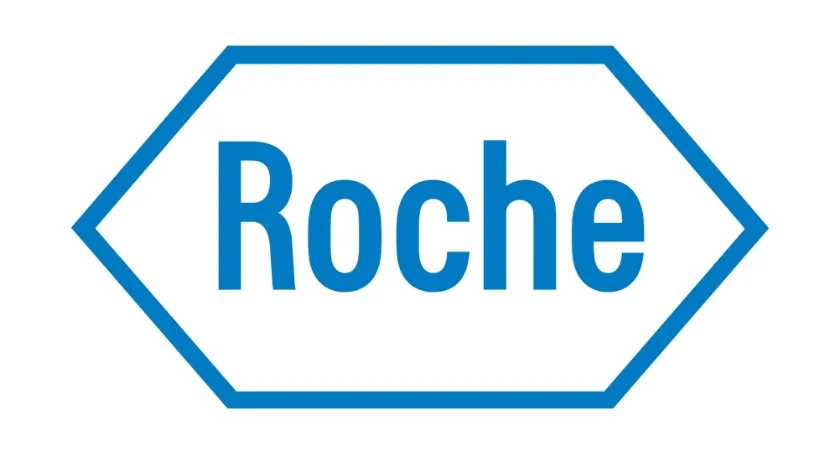
Roche Receives FDA Clearance for CLIA-Waived STI Point-of-Care Tests
Roche has announced a major milestone in the realm of sexual health diagnostics. The U.S. Food and Drug Administration (FDA) has granted the company 510(k) clearance and Clinical Laboratory Improvement Amendments of 1988 (CLIA) waiver for its cobas® liat molecular tests, which are designed for use in diagnosing sexually transmitted infections (STIs) at the point of care. The newly approved tests are the cobas® liat sexually transmitted infection multiplex assay panels, which include tests for chlamydia and gonorrhea (CT/NG), as well as chlamydia, gonorrhea, and Mycoplasma genitalium (CT/NG/MG).
These breakthrough assays allow healthcare providers to diagnose and differentiate between multiple STIs using a single sample, facilitating a faster and more comprehensive approach to patient care. With the FDA’s approval, these tests will soon be exclusively available in the U.S. market. Following that, the commercialization of the tests under the CE mark is expected to take place in the near future, making the technology available to a broader international audience. This development represents a significant advancement in Roche’s ongoing commitment to improving healthcare outcomes through timely and accurate diagnostic tools.
“Rapid molecular point-of-care testing can revolutionize the clinical management of STIs in decentralized and community-based healthcare settings,” said Matt Sause, CEO of Roche Diagnostics. “By enabling informed treatment strategies and improving patient outcomes, these tests help reduce the spread of STIs by providing timely diagnosis.”
Addressing the Global STI Epidemic
The global prevalence of STIs is a pressing public health issue. More than 1 million people around the world acquire a sexually transmitted infection every day, highlighting the urgent need for accessible and reliable diagnostic tools. STIs are often difficult to diagnose because many share overlapping symptoms, and some infections can even be asymptomatic. For example, chlamydia trachomatis (CT) and Neisseria gonorrhoeae (NG) are among the most common and widely transmitted STIs. If left untreated, these infections can cause severe complications, such as pelvic inflammatory disease (PID), urethritis, ectopic pregnancy, infertility, and an increased susceptibility to HIV infection.
In addition to chlamydia and gonorrhea, Mycoplasma genitalium (MG) is an emerging sexually transmitted pathogen that can lead to similar complications, including PID and infertility, especially if the infection is not identified and treated promptly. As the understanding of MG continues to grow, the ability to diagnose this pathogen through molecular testing becomes increasingly critical in the fight to reduce its impact on public health.
These new cobas® liat tests are designed to help address this growing challenge by providing a reliable, rapid, and accurate diagnostic tool for a wide range of STIs. By offering tests for chlamydia, gonorrhea, and Mycoplasma genitalium in a single platform, the cobas® liat system aims to streamline the testing process and improve diagnosis in real-world clinical settings.
Comprehensive Point-of-Care Solutions
Roche’s cobas® liat STI tests are an essential part of the company’s comprehensive portfolio of laboratory-level diagnostic solutions aimed at improving patient care, particularly in point-of-care (POC) settings. Point-of-care testing refers to diagnostic tests that can be performed directly at the location where the patient is being treated, such as in a doctor’s office, urgent care facility, or even at home. This approach has the potential to drastically improve the speed and efficiency of patient care, offering quick results that can inform immediate treatment decisions.
One of the most significant advantages of point-of-care testing is its ability to address issues related to follow-up care. With traditional testing methods, patients may face significant delays in receiving their results or may not return for follow-up appointments, especially in cases where the test results are negative or inconclusive. This can lead to delays in treatment and an increased risk of complications. By using point-of-care testing, clinicians can provide immediate results and initiate treatment right away, significantly reducing the risk of these delays and improving the likelihood of successful treatment outcomes.

The new cobas® liat STI tests are designed with this concept in mind. The tests offer a “test-to-treat” approach, where patients can receive their results and start treatment within the same visit, potentially reducing the chances of a missed diagnosis or delayed intervention. This could be particularly beneficial for high-risk populations who may be more difficult to follow up with, such as those in decentralized or community-based healthcare settings.
The use of rapid, accurate molecular tests also has the potential to improve the efficiency of healthcare systems. Traditional STI diagnostic methods may involve more complicated and time-consuming procedures, such as sending samples to a laboratory and waiting for results. In contrast, the cobas® liat platform is designed to deliver fast, reliable results in just a few minutes. This not only helps clinicians make faster treatment decisions but also minimizes the need for additional diagnostic tests and the risk of unnecessary follow-up visits, thereby reducing healthcare costs and improving overall healthcare efficiency.
Furthermore, the cobas® liat STI tests are highly specific and sensitive, ensuring accurate detection of the target pathogens even in cases where the infection may be asymptomatic or in its early stages. This is crucial for improving health outcomes, as untreated STIs can lead to long-term complications, including infertility and chronic pain. Early detection allows for more effective treatment and can prevent the transmission of infections to others.
Reducing Antibiotic Resistance
Another key benefit of the cobas® liat STI tests is their potential to help combat the growing issue of antibiotic resistance. Antibiotics are often prescribed unnecessarily or overprescribed in cases of suspected STIs, especially when the exact pathogen has not been identified. This can contribute to the development of antibiotic-resistant strains of bacteria, making infections harder to treat in the future.
By providing rapid and accurate identification of the specific STI-causing pathogen, the cobas® liat system allows clinicians to tailor treatment strategies more effectively. Instead of prescribing broad-spectrum antibiotics that may not be necessary, clinicians can prescribe targeted treatments based on the exact infection, reducing the risk of unnecessary antibiotic use and the development of resistance.
Roche Roche Roche Roche Roche
Read more: Roche Gets FDA Clearance for CLIA-Waived STI Point-of-Care Tests




